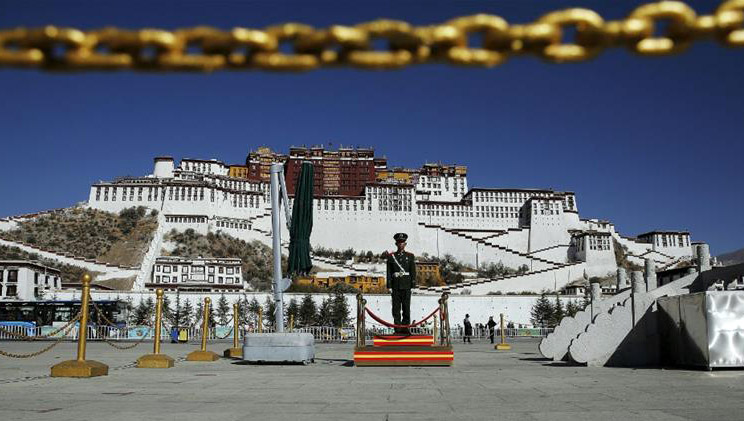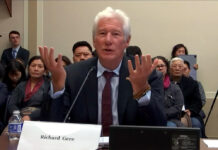
(TibetanReview.net, Jan13’20) – The local Chinese parliament of Tibet Autonomous Region (TAR) has on Jan 11 passed a set of regulations to “strengthen ethnic unity” and it will take effect on May 1, reported scmp.com Jan 13, citing the regional party mouthpiece Tibet Daily. The report said other neighbouring provinces, including Yunnan and Qinghai, had approved similar regulations last year and that officials in Xinjiang had occasionally cited similar regulations to justify crackdowns on the region’s ethnic Uygur community.
The regulations require all levels of government, companies, community organisations, villages, schools, military groups and religious activity centres to be responsible for work on ethnic unity. They should support efforts to develop local trade, tourism and handicraft industries and build local brands, the report was cited as saying.
All types of companies are also stated to be encouraged “to integrate ethnic unity into the companies’ management and culture, recruiting employees from all ethnic groups”.
A similar move made in the aftermath of China’s bloody crushing of the 2008 large-scale Tibetan protests required the TAR government to especially ensure the socio-economic well-being of Chinese immigrants in the region.
A policy to encourage inter-ethnic marriages as a means to strengthen ethnic unity has long been implemented.
The Tibet Daily report did not release the full text of the regulations, saying only that they contained “dos and don’ts” for the local governments and society to promote ethnic unity, noted the scmp.com report.
In particular, the month of September has been designated under the regulations as a month for activities to promote ethnic unity in the region.
The report noted that in Aug 2015, Chinese President Xi Jinping had said while addressing a national conference on Tibet that officials must focus on maintaining the unity of the nation and strengthening ethnic unity to promote the “sustainable, long-term and comprehensive stability of the society”.
Citing the official Tibet.cn, the report quoted an unnamed official overseeing the legislature as saying: “Tibet has entered a new era of long-term development with peace and stability. These regulations are to consolidate the practices and achievements in building harmonious ethnic relationships and to establish a model for all of the people and industries in Tibet.”





